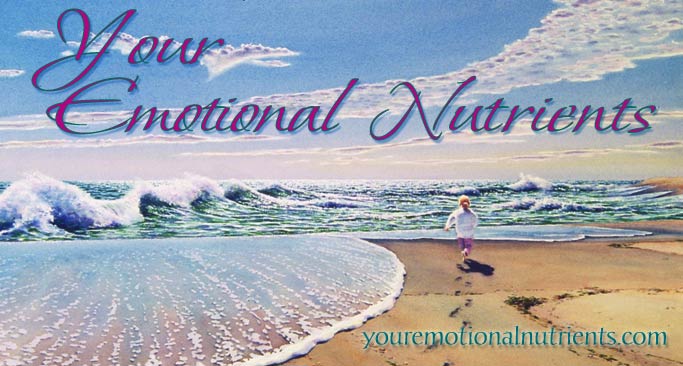|
(Article for your
blog, email copy or newsletter)
|
|
Back
|
Print
|
Bookmark
|
|
Revealed: The Basic Elements of
Our Adult Life Cycle
|
|
|
|
Smooth Life Passages Are Made
from These Ingredients
Pamela Levin, R.N., T.S.T.A.
Pamela Levin is an
R.N., a Teaching and Supervising Transactional Analyst and award-winning
author. She has studied and taught about creating
successful life passages for 42 years - in private
practice and workshops, seminars and trainings around the
world. [Your affiliate link to
YEN]
|
Knowing the stages that
make up our ever-evolving cyclical life process as adults means taking the power in our own hands to create a
satisfying emotional life and smoother life passages. Before going on to the stages themselves, be aware that each
stage is an entire universe with many characteristics. Among them are:
Emotional Elements
Social Traits & Patterns of Relating
Neurological Components
Basic Needs
Developmental Tasks
Commonality with Childhood Stage
Inner Experience
1. Being: The Ground of Our
Existence is all about showing up to
partake of life, and then doing what it takes to survive and thrive
- everything from air, water, food, emotional connection and
nourishment. As infants, our concern is "how do I get fed", and as
adults, it's "how do I feed myself"-but otherwise the themes and
issues and challenges are the same.
2. Doing: The World of Senses and Action has to do with the world
of action - getting our bodies organized to be able to do things,
and then doing them - all the way from learning to reach out and
grasp and learning to crawl, walk and talk as a toddler, to
carrying out activities that are often highly sophisticated as
adults.
3. Thinking: The Conceptual Realm is
the stage where we begin our
lives as independent people, creating boundaries, exerting our will
in relationships with others, and yes, sometimes even in adulthood,
having temper tantrums!
4. Identity: Our Ever-Evolving Self is the time we explore and
establish who we are in the social world and where we fit in... and
don't fit in. It's our introduction to the world of politics. As
children it means figuring out what it means to be a boy or
girl,who all these other people are and what can be done to impact
them. As an adult, it means figuring out those exact same things,
and doing so every time we undergo a major change (a job change,
birth of a child, death of a loved one, etc.)
5. Skillfulness: The How-to's of Our Lives In this phase we
concentrate on either creating for the first time (as in childhood)
or updating and upgrading (in adulthood) all the values and skills
we need to manage our lives and do what we want to do, much of it
based on the 'tribe' to which we belong, and the culture in which
we operate.
6. Regeneration: Creation and Procreation This is the bridge phase
between the world of childhood and adulthood, initially, and it is
one we repeat many times in adulthood. Our primary focus is around
our sexual selves, maturing as sexual beings and integrating all
that into one, cohesive functioning personality, culminating in a
new level of emotional maturity and personal power in adulthood.
7. Recycling: Manifesting the Promise of Life begins when our
foundational layers are all made. Still, we cycle through the same
stages we did as children, but now our focus is on using that
foundation to build our life structure as adults, and to remodel,
repair and rebuild it as necessary throughout our adult
lives.
Simone de Beauvior must have understood this cyclic repetition of
childhood stages in adulthood when she said,
"What is an adult? A child blown up by
age."
Additionally, in each of these stages we need key emotional nutrients
to support our healthy growth in the same way that we need key physical nutrients from food for our bodies.
To take in a complementary sample, go to http://www.youremotionalnutrients.com [affiliate product
link][your clickbank link]
TAG LIST
↑
Back to Top
| 